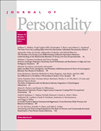Sex Differences in Variability in Personality: A Study in Four Samples
Abstract
Objective
Men vary more than women in cognitive abilities and physical attributes, and we expected that men would vary more in personality too. That this has not been found previously may reflect that (a) personality was measured by self-reports that confound target sex with informant sex, and (b) men actually vary more but accentuate personality differences less than women.
Method
We analyzed informant reports and self-reports on the NEO Personality Inventory (NEO PI-R or NEO PI-3) collected for two community and two student samples from four countries: Czech Republic (N = 714; age M = 36.1, SD = 14.1; 58% women), Estonia (N = 1,685; age M = 42.6, SD = 13.4; 58% women), Belgium (N = 345; age M = 18.4, SD = 3.0; 78% women), and Germany (N = 302; age M = 23.4, SD = 2.7; 56% women).
Results
Higher male than female variability was found in each sample for informant reports of Extraversion, Openness to Experience, Agreeableness, and Conscientiousness. Men but not women were overrepresented in both tails of the distributions of several personality traits.
Conclusions
According to liability-threshold models of mental disorders, this may contribute to men's overrepresentation in some kinds of deviant groups.




